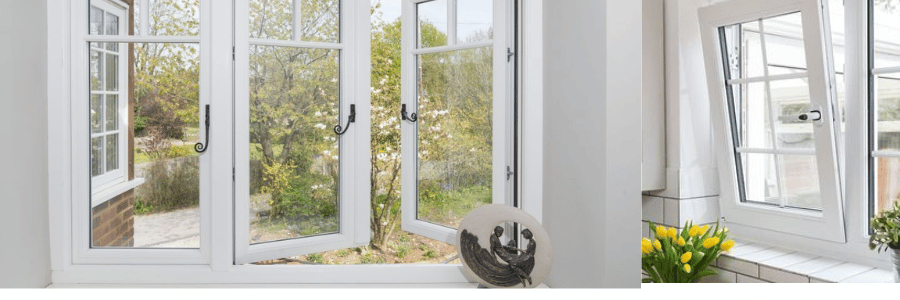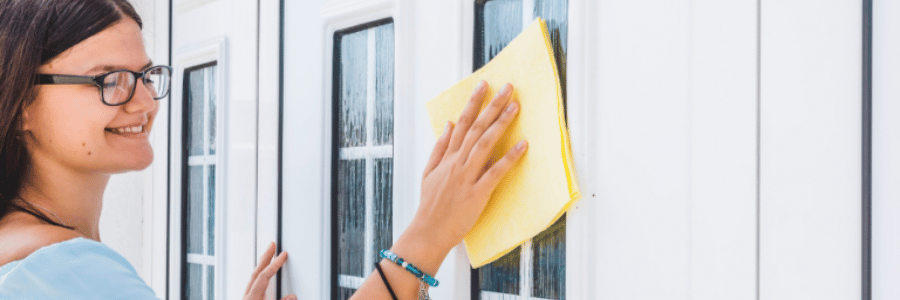When it comes to choosing windows for your home or office, the terms UPVC and PVC are often mentioned. While they sound similar, there are important differences between these two materials that can significantly impact their performance, durability, and suitability for various applications. Understanding these distinctions will help you make an informed decision for your next window installation. Let’s dive into the key differences between UPVC and PVC windows.
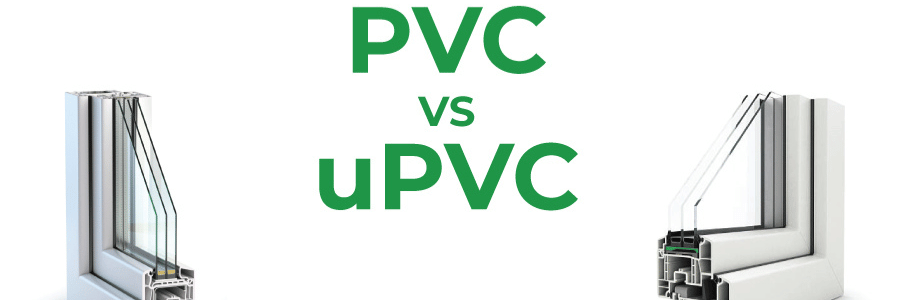
What is PVC?
PVC, or Polyvinyl Chloride, is one of the most commonly used synthetic plastic polymers worldwide. This versatile material is used in everything from plumbing pipes and flooring to electrical cable insulation and even clothing. PVC in its raw form is somewhat flexible, durable, and resistant to chemical corrosion. It is made by polymerizing vinyl chloride monomer, which creates a rigid structure for most of its uses.
When it comes to windows, PVC can be used in its standard form, but this is often less ideal for long-term, exterior applications like window frames. While it is still weather-resistant and durable, standard PVC lacks the structural strength and stability required to handle extreme weather conditions over many years. As a result, while PVC windows are used in some cases, their performance can sometimes fall short, especially in climates that experience high levels of sun exposure, rain, or extreme temperatures.
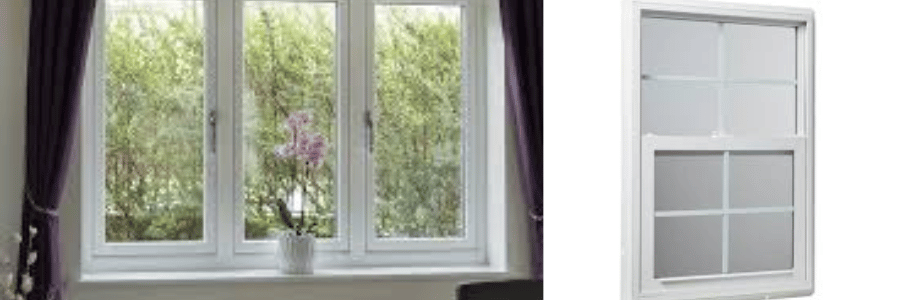
What is UPVC?
UPVC, or Unplasticized Polyvinyl Chloride, is a modified version of PVC designed specifically for use in construction applications like window frames, doors, and plumbing systems. The term “unplasticized” refers to the fact that no plasticizers (chemicals used to make plastics more flexible) are added to the material, making it rigid and much stronger than standard PVC. UPVC has been engineered to offer greater resistance to UV rays, weather, and environmental degradation, which makes it an excellent choice for exterior applications.
In addition to being more rigid, UPVC is also more stable in extreme conditions, making it highly resistant to warping, cracking, and discoloration over time. This makes UPVC a preferred material for windows and doors, as it combines the benefits of plastic with superior durability and structural integrity.
Key Differences Between UPVC and PVC Windows
1. Material Composition and Durability
- PVC: Standard PVC is a flexible material that is suitable for applications where high durability isn’t a top concern. It can be shaped easily into various forms, but its flexibility means that it can be prone to warping and bending under pressure or after prolonged exposure to harsh weather. Over time, it can degrade under the sun’s UV rays, leading to brittleness or fading of color.
- UPVC: UPVC is rigid, meaning it does not bend or warp under stress. This rigidity provides it with increased strength, which makes it ideal for long-lasting window frames. The addition of stabilizers ensures that UPVC is highly resistant to UV rays, moisture, and extreme temperatures. Because it doesn’t suffer from the same level of wear and tear as PVC, UPVC windows can last for several decades without significant degradation.
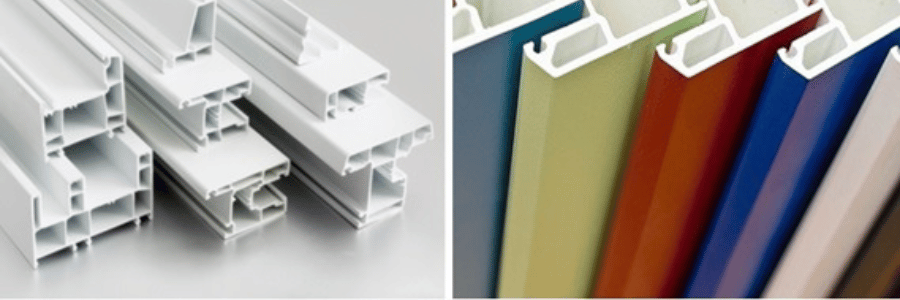
2. Weather Resistance
- PVC: While PVC is generally resistant to water, it is less robust when it comes to handling extreme weather. PVC windows may expand or contract in fluctuating temperatures, and they are more prone to becoming brittle after prolonged exposure to the sun. Over time, this degradation can lead to cracks and a weakened frame, which compromises the window’s structural integrity.
- UPVC: UPVC windows excel when it comes to withstanding adverse weather conditions. Their robust resistance to UV rays ensures that the material will not crack, discolor, or degrade over time. Whether exposed to high levels of sunlight, intense rain, or snow, UPVC windows maintain their strength and stability. Their superior weather resistance is one of the main reasons why UPVC windows are considered to have a much longer lifespan compared to PVC.
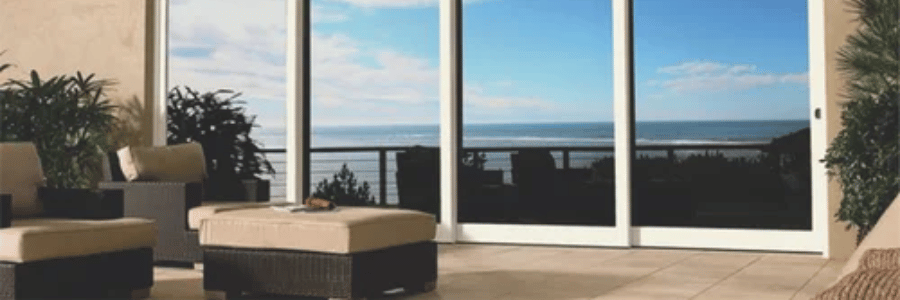
3. Energy Efficiency
- PVC: Standard PVC has basic insulating properties but does not excel in terms of energy efficiency. The material itself may not provide enough thermal insulation, which can lead to energy loss through the windows, especially during extreme weather. This means that your heating and cooling systems may need to work harder to maintain a comfortable indoor temperature.
- UPVC: UPVC is a much better insulator than standard PVC, offering excellent thermal efficiency. The rigid nature of UPVC allows for better sealing around the window, preventing drafts and reducing heat loss. This can help regulate indoor temperatures more effectively, leading to a reduction in heating and cooling costs. UPVC windows are often used in energy-efficient homes, as they help keep the home warmer in the winter and cooler in the summer.
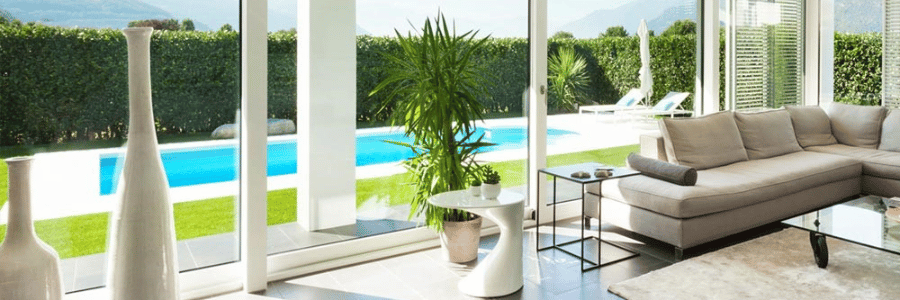
4. Maintenance
- PVC: PVC windows require minimal maintenance, but over time they may need to be cleaned more often to prevent dirt buildup. If the windows are exposed to harsh conditions, the color may begin to fade or discolor, especially if they are subjected to UV rays. While they won’t require frequent painting, homeowners may notice some signs of aging after a few years, such as yellowing or surface cracking.
- UPVC: UPVC windows are very low-maintenance. They do not require painting or sealing, and their smooth finish makes them easy to clean with just soap and water. The color of UPVC windows remains consistent for many years, even with constant exposure to sunlight. Additionally, UPVC is resistant to dirt and grime, making it an ideal choice for homes in polluted or coastal areas. The durability of UPVC materials also means fewer repairs or replacements are needed in the long run.
5. Cost
- PVC: PVC windows are generally more affordable than UPVC, making them an attractive option for homeowners on a budget. However, while the initial cost may be lower, PVC windows tend to have a shorter lifespan and may require more frequent repairs or replacements. Furthermore, their lower energy efficiency could lead to higher utility bills over time.
- UPVC: UPVC windows are more expensive initially but offer better value in the long term due to their longevity, durability, and energy efficiency. Homeowners may find that the investment in UPVC windows pays off over time, as they reduce the need for repairs and lower energy costs. In addition, many UPVC windows come with long warranties, which add to their overall cost-effectiveness.
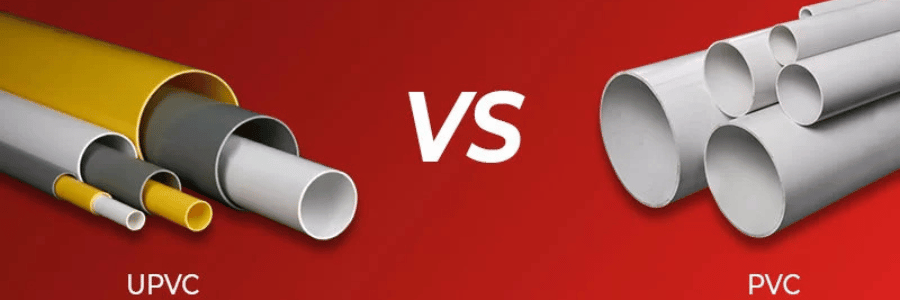
6. Appearance and Aesthetics
- PVC: PVC windows have a shiny, smooth finish, but this may not be to everyone’s taste. Additionally, the color choices for PVC windows can be limited, and the material does not have the same high-end aesthetic appeal as other materials like wood or UPVC. PVC windows may also show signs of wear and tear over time, which can impact their appearance.
- UPVC: UPVC windows are designed to look modern and sleek. They are available in a wide range of colors and finishes, including wood-like textures that mimic natural timber, making them suitable for a variety of architectural styles. This flexibility allows homeowners to choose UPVC windows that complement the overall aesthetic of their property. Furthermore, because UPVC is resistant to fading, the windows maintain their appearance over many years, ensuring that they continue to enhance the curb appeal of your home.
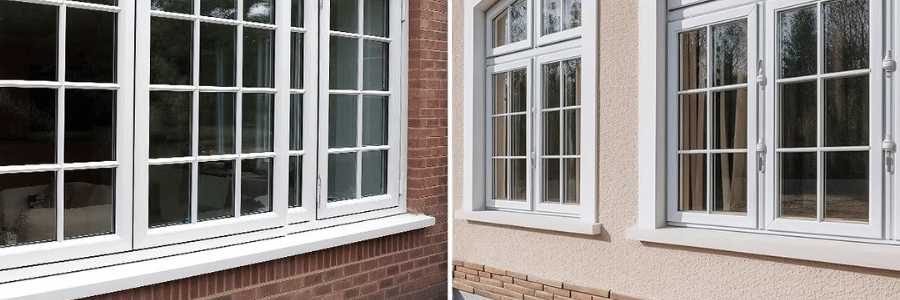
Which One is Right for You?
Choosing between UPVC and PVC windows depends on your needs, budget, and climate conditions. Here’s a quick guide to help:
- Choose PVC windows if you are on a tight budget and need an affordable option for interior windows or applications that are not exposed to extreme weather conditions. PVC windows are a good fit for less demanding environments, where durability and weather resistance are not as crucial.
- Choose UPVC windows if you are looking for a long-term investment with superior durability, energy efficiency, and low maintenance. UPVC is the better choice for exterior windows, particularly in areas with harsh weather conditions, as it offers better insulation, weather resistance, and a longer lifespan.
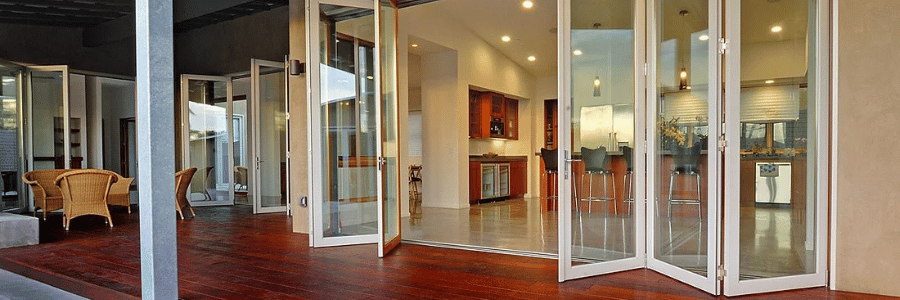
Conclusion
While both PVC and UPVC windows offer certain benefits, UPVC stands out as the superior choice for most homeowners. With its durability, weather resistance, energy efficiency, and minimal maintenance requirements, UPVC provides excellent value for money in the long term. Whether you’re building a new home or replacing old windows, UPVC is the material that will give you peace of mind, knowing your windows will perform reliably for years to come. When comparing UPVC vs PVC windows, it’s clear that UPVC is the more durable and reliable option for modern window installations, offering long-term benefits that far outweigh the initial cost.

